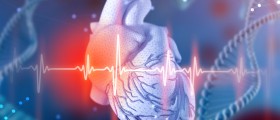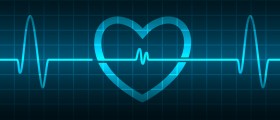
Cardiovascular or circulatory system is one of the most important systems in the human body. It is consisted of the heart, blood vessels and blood. The heart has the role to pump the blood through the blood vessels and thus supply the cells and tissues with oxygen and nutrients in the different parts of the body. Circulatory system can be divided into two sections. There are pulmonary and systematic circulations. Since the circulatory system is vital for the survival, it is crucial to keep it healthy. However, the circulatory system can be affected by many disorders. Heart disease is a general term for all problems that affect the heart and the blood vessels.
Although many people think that heart disease is mainly common in men, they are wrong. Many women die of heart diseases even more so than breast cancer. The most common heart diseases are coronary artery disease, heart attack, and stroke and periphery artery disease. When the blood flow is impaired, several symptoms may occur. The people with certain heart disease can experience the pain in the chest, while in women; this pain tends to spread to the back and to the shoulders. Shortness of breath, heart palpitations, dizziness and tiredness are also some of the signs of heart diseases that should not be ignored.
Risk factors
Heart disease can be caused due to many reasons, but one of the most common is obesity. In people who eat a lot, cholesterol and fatty substances tend to accumulate on the walls of the blood vessels. In such way, the plaque is formed and the blood vessels become narrowed. Because of this, narrowing the blood flow is very slow and sometimes cannot reach some parts of the body as fast as it should. For example, when the brain does not get the blood, a stroke occurs.
Another cause for the heart disease is high blood pressure or hypertension. The blood pressure above 140/90 mm Hg is considered to be high blood pressure. Furthermore, heart disease can be induced by the excessive smoking or consuming alcohol, as well as by physical inactivity. Moreover, hyperglycemia and diabetes can also lead to the heart disease.
Risk factors in women
The women who entered the period of menopause are at high risk to develop heart disease because the hormone estrogen, which is believed to protect from the heart diseases, is not produced anymore. Furthermore, contraceptive pills, high levels of triglycerides and constant exposure to stress are some of the factors that contribute to the developing of heart disease in women.
- www.cdc.gov/heartdisease/facts.htm
- www.cdc.gov/heartdisease/docs/ConsumerEd_HeartDisease.pdf
- Photo courtesy of mohamed hassan by Pxhere: pxhere.com/en/photo/1448071

















Your thoughts on this
Loading...